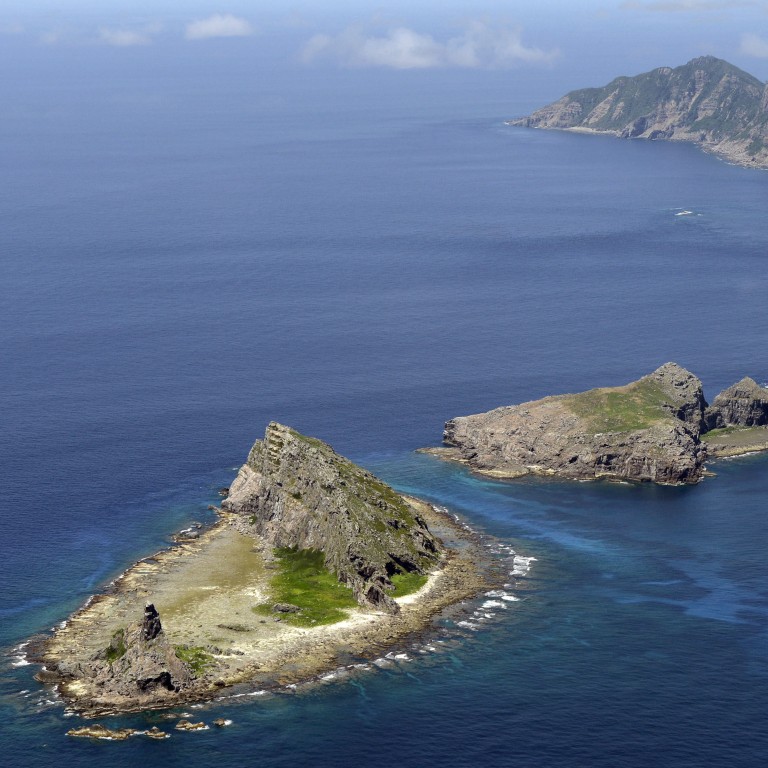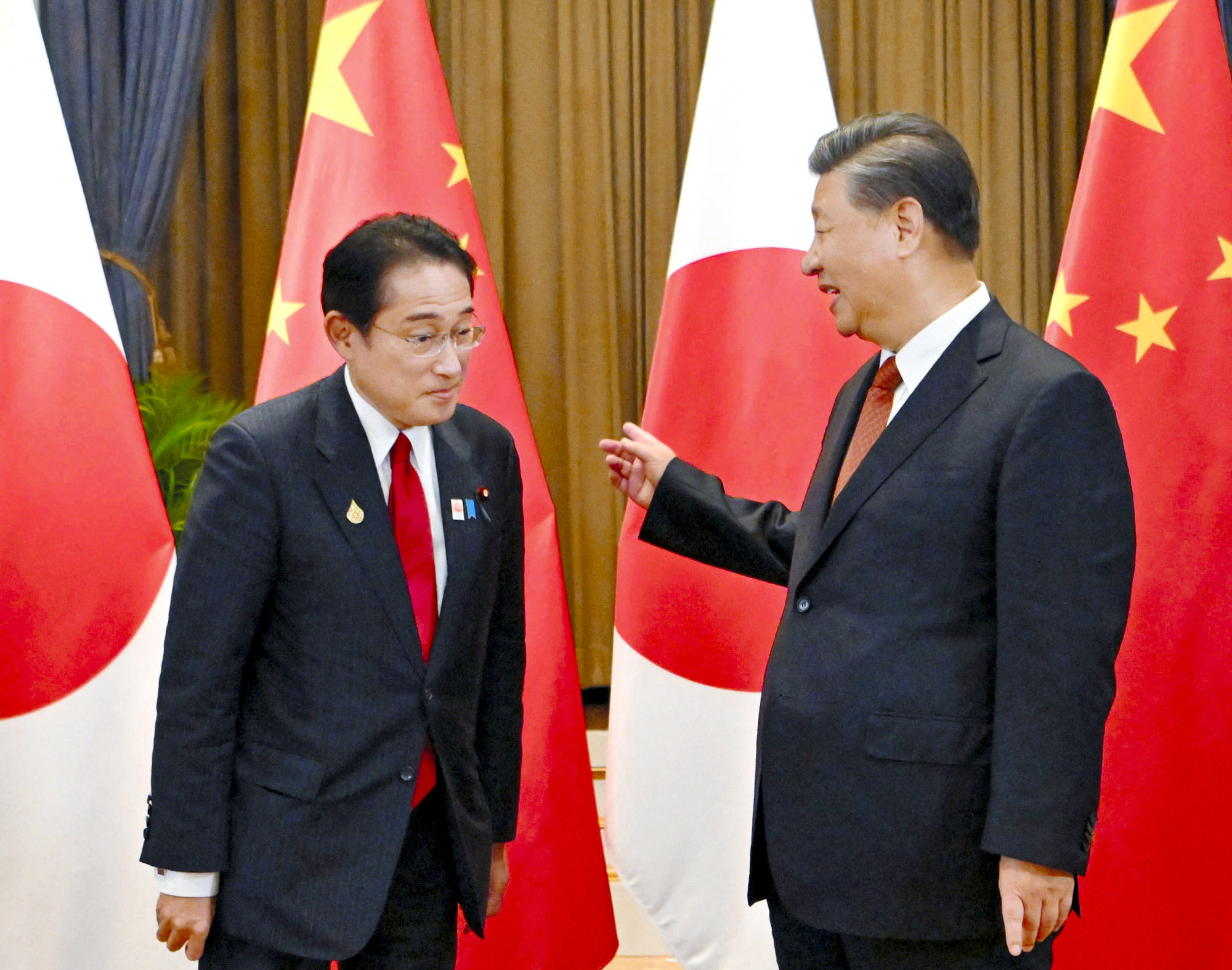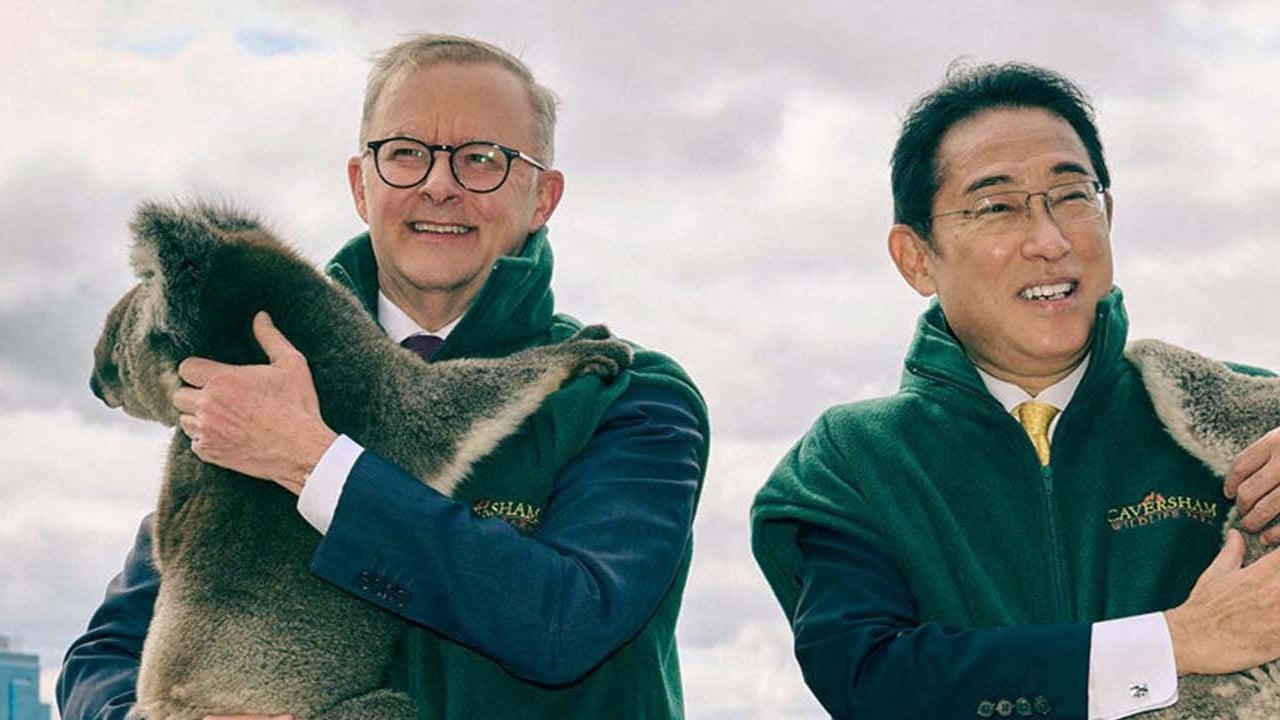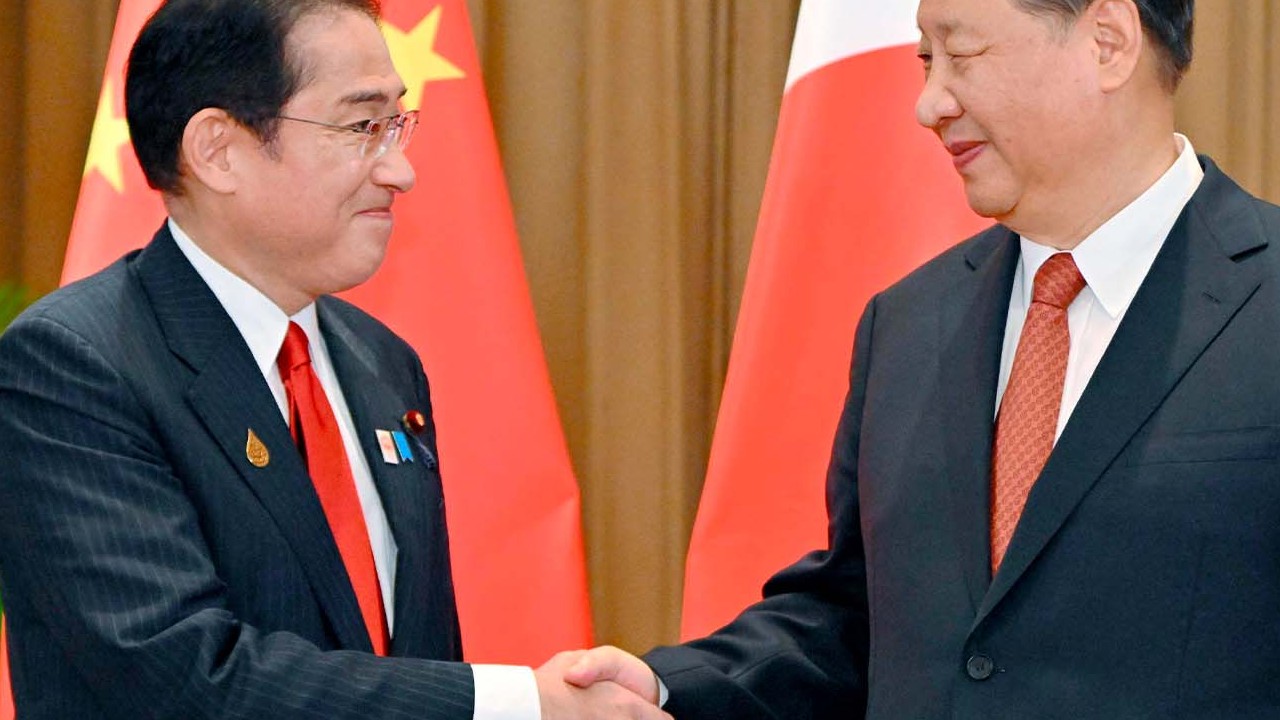
China and Japan plan fresh round of economic talks after Xi Jinping and Fumio Kishida’s meeting
- The two sides issued a statement promising to strengthen mutual trust and renew efforts to establish a hotline between their defence ministries
- But both leaders also highlighted long-standing areas of concern, including Taiwan and the East China Sea
China and Japan have pledged to strengthen communication over maritime issues and hold a new round of economic talks in an effort to stabilise relations, but a number of sticking points remain.
The document also included the Chinese leader’s comments at the start of the meeting that the importance of the relationship remained unchanged and a pledge to strengthen political mutual trust and coordination on international affairs.
They also agreed to work to set up a new round of their High-Level Economic Dialogue, the first since the start of the Covid-19 pandemic, and people-to-people and cultural exchanges.
The two countries also promised to renew efforts to establish a direct telephone line between their defence ministries.
The line was first mooted in 2019 and was intended to form part of a mechanism set up the previous year that allows their respective air forces and navies to make emergency contact in the event of a crisis in the East China Sea.
Security rivalry adds to ‘strategic distrust’ between China and Japan
The last known consultation on this hotline was a call between the two countries’ defence ministers in 2020, when the Chinese defence ministry said “positive progress” had been made.
However, both leaders also discussed major points of disagreement during their meeting on the sidelines of the Asia Pacific Economic Cooperation summit in Bangkok.
Kishida said he had raised “serious concerns” about Chinese military activities near the Diaoyu Islands, also known as the Senkakus, which both sides claim. The islands are controlled by Tokyo, but are patrolled by the Chinese coastguard on an almost daily basis.
He also raised the question of Taiwan and expressed concerns about Chinese missiles that fell into Japan’s exclusive economic zone (EEZ) during military drills held in the wake of US House Speaker Nancy Pelosi’s visit to Taiwan in August. Beijing rejected Tokyo’s protest back then and said the two sides had not agreed to the limits of the EEZ.
Meanwhile, Xi warned against foreign interference in China’s internal affairs, saying “major issues of principle” such as the two countries’ history and Taiwan must be “handled appropriately”, according to a statement released by the Chinese foreign ministry following the meeting.
Other Chinese concerns include a draft plan for Japan and the United States to build a joint military base in the Ryukyu Islands, which many see as a preparation for any criss in the Taiwan Strait.
It is also considering buying medium-range Tomahawk cruise missiles from the US, which could reach targets in mainland China when fired from Japanese territory.
Yoichiro Sato, an Asia-Pacific studies professor at Ritsumeikan Asia Pacific University in Japan, said it would not have been “wise” for Kishida to push the Taiwan issue during the meeting.
“China has managed to demonstrate its military resolve to prevent Taiwan from declaring independence without an actual clash of forces. Xi has consolidated control within the Communist Party congress,” he said.
“Kishida may see an opportunity to score points from the domestic conservatives, but Xi feels no new incentive to discuss Taiwan.”
Japan’s conservatives, who usually favour a hawkish approach toward China, were particularly unsatisfied after Kishida picked as foreign minister Yoshimasa Hayashi, who they accused of being too pro-China.
China wants stronger ties with Japan, Premier Li Keqiang tells Fumio Kishida
Pang Zhongying, an international affairs professor at Sichuan University, said Kishida would like to stabilise relations with China.
“Many Japanese companies would love to invest more in China,” he said. “[There are calls for] the Japanese government to strengthen economic relations with China after the pandemic, and not to simply decouple.”
Economic ties between the two remain robust. China is Japan’s biggest trade partner, with the total trade volume reaching a record high of US$371.4 billion last year.
Pang said the meeting with Kishida may have been the most important one Xi held this week after the one he held with US President Joe Biden on Monday and the choice of the Apec summit as the venue had significant regional importance.
However, Pang said while the meeting may pave the way for a new start in the relationship, there are still a lot of uncertainties.
“[We] will wait to see how the US and Japan will change their policies toward China going forward,” he said.
Bhubhindar Singh, a Northeast Asia international relations expert at the S Rajaratnam School of International Studies at Singapore’s Nanyang Technological University said Xi’s meeting with Kishida came at an important time because Japan intends to publish a new national security strategy by the end of the year.

“These documents will form the foundation for Japan’s security and defence policies for the next decade and China has a central role in shaping Japanese options and policies. Discussions on how to relate to each are absolutely crucial at this juncture of their bilateral relationship,” he said.
“This meeting is also just a start for a long-term process where Japan and China set guardrails that could prevent the bilateral relationship from deteriorating further. This is crucial, as the stability of East Asia or the Indo-Pacific is dependent on the stability of Sino-Japanese relations.”

 - Kawala Xie.jpg?itok=NogZcyZ-&v=1661304068)

